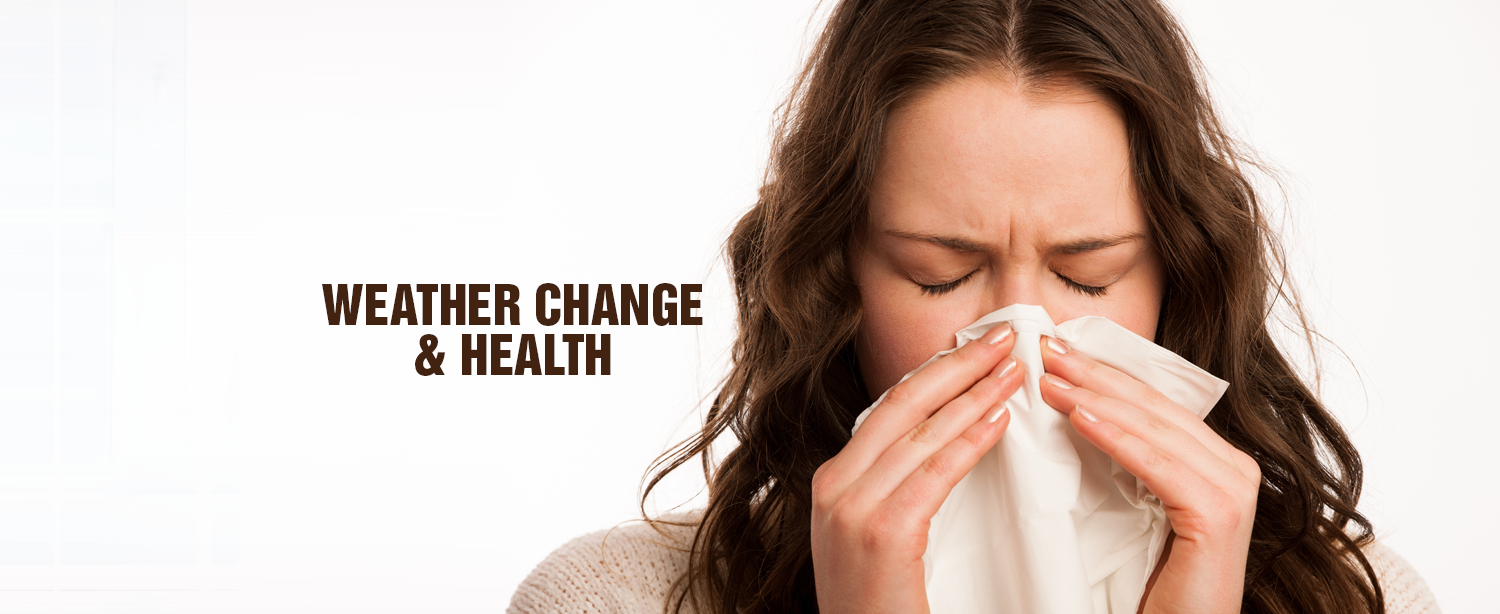Any change in season affects people with illnesses. The young and old are easily affected and so are the ones with low immunity. People usually suffer from cold or flu when the seasons change. The most common reason one may think for this is the change in temperatures. But that is not true. Rather, the temperature shifts permit a different group of viruses to flourish, and it’s these viruses that make people sick.
Many studies suggest that rhinovirus and coronavirus are the two main agents of the common cold. They are more likely to flourish in cooler climates. Likewise, the influenza virus replicates and spreads most effectively when the air is cold and dry.
Summer illnesses arise from a combination of several factors. People with seasonal allergies often feel congested and develop runny noses and itchy eyes when they’re near pollen, or grass. Their immune systems may go into overdrive as they react to these allergies, leaving them more vulnerable to viral contagions.
Here’s how our body reacts to a seasonal change:
Blood Pressure
Do you notice your blood pressure numbers decreasing when the weather gets warmer? Your systolic and diastolic blood pressure numbers change when confronted with warmer weather, so when the sun starts shining in the spring and summer, your blood pressure generally gets lower. But during the cold winter months, you can expect the diameter of blood vessels to tighten, causing the heart to work overtime to force blood through the narrowed veins and arteries. So you’ll see a spike in blood pressure when it’s cold and a decrease in numbers when it’s warm.
Joint Pain
Your joints are sensitive to temperature. Doctors often recommend warmer climates for individuals with joint pain because cold weather causes muscles, ligaments, and tendons to become stiff. Cold weather causes added pressure on the joints. So when the weather shifts from cold to warmer temperatures, your joints experience a bit of pain relief. But when you are exposed to heat for long periods of time, your body may experience dehydration, which decreases the amount of fluid in the joint. This exacerbates existing pain levels.
Headaches & Migraines
If you have frequent migraines, you may experience lower workplace productivity and missed social events that can dampen your quality of life.. Researchers believe these changes in weather patterns may affect the pressure on the brain or the way the brain manages pain. When the warm weather begins to kick in or the days get longer, exposure to bright sunlight might trigger a migraine or headache.
Asthma
Extreme cold or hot weather conditions can aggravate those with asthma symptoms. The airways become irritated by these sudden swings in temperature. If you’re inhaling cold air, on the one hand, it can constrict the airways. During the warmer months, on the other hand, asthma sufferers have to deal with pollutants and exhaust fumes that are hard to escape.
Eczema
If you’re dealing with eczema, your skin will enjoy the relief that comes when the weather becomes warmer. On the other hand, you don’t want your body to become too overheated during the summer months.
In the spring, seasonal sniffing can also come from another culprit: allergies. They need to be diagnosed and treated correctly. Those who know they have allergies need to take particular care in the spring. Allergies can leave you feeling miserable and more likely to catch a cold virus because the immune system is already under attack.
What can help in such scenarios? Frequent washing of hands is essential as the cold virus can live on the human skin for at least two hours.
The weather outside can certainly significantly influence how we feel. Not by as much as most people think and not the same way in everyone. But enough to make a difference. Warm and moist conditions also promote the release of fungal spores which can set off allergies in some people.
Take care of your health. Our team of doctors at Kokilaben Dhirubhai Ambani Hospital can help you in case of any illnesses. Please find below link for more details:
https://www.kokilabenhospital.com/patients/makeanappointment.html


